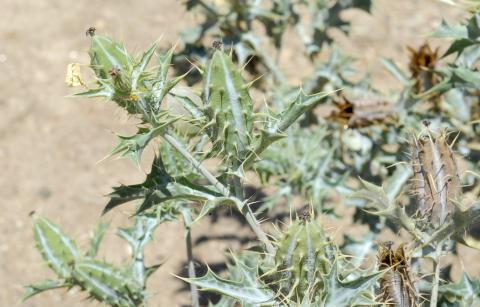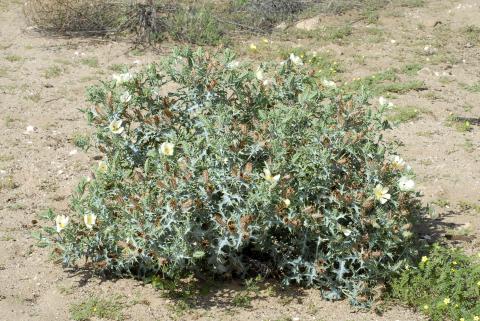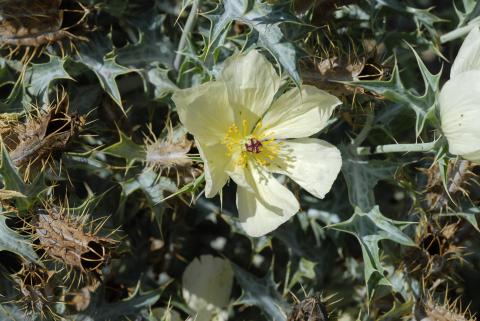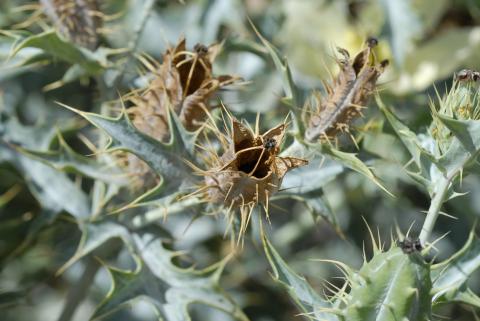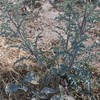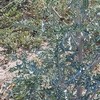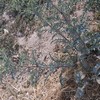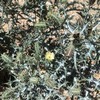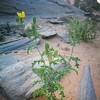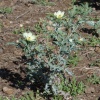Summary details for Argemone ochroleuca
Prickly poppy
Argemone ochroleuca/Argemone subfusiformis
Note: these two species are extremely difficult to tell apart, and are treated in this atlas as a single species
Common names: prickly poppy, Mexican poppy, Mexican thistle (English); Bloedissel (Afrikaans)
Origin: South America
Description
Annual or perennial herb, usually less than 1 m high. Stems waxy grey- green with sharp yellowish-brownish spines, oozing an orange-yellow sap when damaged. Leaves waxy blueish-green with white-grey markings; margins lobed, with widely spaced teeth ending in fine, fiercely sharp spines. Entire plant looks as if covered with a greyish-blueish-green waxy layer. Flowers showy, poppy-like; petals delicate, cream-coloured to pale yellow; stamens numerous, deep yellow; stigmas red. Seed capsules ovoid, spiny, green with whitish waxy longitudinal stripes down seams, becoming brown and splitting open at tip to release blackish seeds when mature.
Distribution/Discussion
Highly invasive, each capsule producing many seeds. Common in riverbeds, empty dams, floodplains and disturbed areas such as old or fallow fields and road verges. Sometimes causes stock poisoning (including chickens), although the plants are very spiny and unpalatable. Usually stock deaths are caused by consumption of hay or seed contaminated with this plant.
» See all records of Prickly poppy Argemone ochroleuca/Argemone subfusiformis

